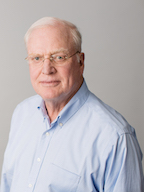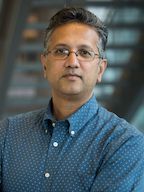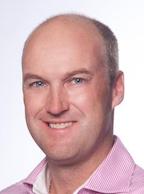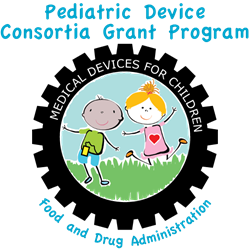FDA Awards UCSF and Stanford 5-year $6.7M P50 Pediatric Device Consortia (PDC) Grant


|
Michael Harrison, MD, Professor Emeritus of Surgery, Pediatrics, Obstetrics, Gynecology and Reproductive Sciences at the University of California, San Francisco (UCSF), Shuvo Roy, PhD, Professor of Bioengineering & Therapeutic Sciences at UCSF, and James Wall, MD, Assistant Professor of Surgery at Stanford University have been awarded a five-year $6.7 million Pediatric Device Consortia (PDC) P50 grant from the U.S. Food and Drug Administration (FDA). The UCSF-Stanford PDC is one of five centers selected to participate in the national program aimed at accelerating the development and availability of medical devices designed specifically for kids, whose access to state-of-the-art medical technology lags 5-10 years behind adults. Advancing Pediatric Device DevelopmentLocated in the heart of Silicon Valley, the UCSF-Stanford PDC will leverage the strengths of UCSF’s program in surgical device innovation, Stanford’s renowned Biodesign program, Northern California’s top two children’s hospitals, and a rich network of device industry and entrepreneurial partners to support pediatric device innovators through the total product development lifecycle. Features of the joint initiative include concept-stage market and value analysis assessments; comprehensive in-house engineering and product development services; regulatory, patenting, and business planning services; and commercialization strategy advising. |
 The grant will also provide $250,000 in seed funding through an annual Accelerator competition and support for a demonstration project that utilizes “real world evidence,” or patient data routinely collected from a variety of sources (e.g., EHR, claims activity, product registries, etc.), to augment the evidence base available for regulatory decision-making.
The grant will also provide $250,000 in seed funding through an annual Accelerator competition and support for a demonstration project that utilizes “real world evidence,” or patient data routinely collected from a variety of sources (e.g., EHR, claims activity, product registries, etc.), to augment the evidence base available for regulatory decision-making.
Meeting the Challenge
Navigating the device development pathway is challenging, particularly for pediatric device innovators, as the small market sizes often ward off interest from investors and larger corporations. That’s where the PDC steps in – offering assistance through each stage of development to individual entrepreneurs, academic physicians and researchers, trainees, and startups, primarily through its weekly Innovators Forum and Pediatric Device Accelerator. The UCSF PDC held its first Accelerator competition in November 2017, awarding eight seed grants ranging from $20,000 to $50,000 to pediatric device innovators across the country. The funds and personalized advising have allowed the projects to make significant strides, namely three that have progressed to the clinical testing stage:
- UC Berkeley spinout InkSpace Imaging, recipient of a $50,000 Accelerator Award, is developing flexible MRI coils for pediatric patients and will begin their first clinical study later this year. The PDC’s internal staff assisted the device developers in navigating the IRB process, finding clinical collaborators at UCSF, and matching them with a commercialization mentor from the PDC’s deep network of advisors.
- Tabla, a handheld acoustic pneumonia detection device invented by UCSF MD/PhD candidate Adam Rao, is being used to collect data from patients with cardiogenic pulmonary edema to determine whether it can detect daily lung fluid changes associated with heart failure exacerbation. They also plan to collect data on pneumonia patients in an upcoming study. In addition to funding, the PDC helped recruit a machine learning engineer and clinical research coordinator to the team.
- Utilizing its proprietary 3D printing technology, UNYQ is creating custom-fit braces for children with the chest wall defect pectus carinatum. The PDC linked UNYQ and UCSF pediatric surgeon Benjamin Padilla, MD, who will serve as a clinical collaborator. The team is currently enrolling patients in a pilot trial at UCSF.
A Strong Legacy of Device Innovation
In 2009, the UCSF PDC became part of the first cohort of academic medical centers to receive FDA funding to launch programs dedicated to stimulating and supporting pediatric device development. The 2018 grant award makes UCSF the longest running continually funded consortium of this type. Under the leadership of Drs. Harrison and Roy, the UCSF PDC has advanced 10 internally developed devices to first-in-human trials and guided three to market availability. Collectively, the technologies incubated have attracted over $30 million in external funding. The UCSF PDC has also been a catalyst for establishing a thriving ecosystem in medical device innovation at UCSF, paving the way for programs such as UCSF Surgical Innovations, UC Berkeley-UCSF Master of Translational Medicine, and the Rosenman Institute at QB3.
Since its founding in 2000, Stanford Biodesign has established an internationally recognized model for device development, having launched 45 successful startup companies whose technologies have now reached over a million patients. Dr. Wall, who serves as Assistant Director of the Byers Center for Biodesign Innovation Fellowship, will be the PI for Stanford and will mentor one fellow per year to apply the Biodesign process to pediatric-specific technologies.
